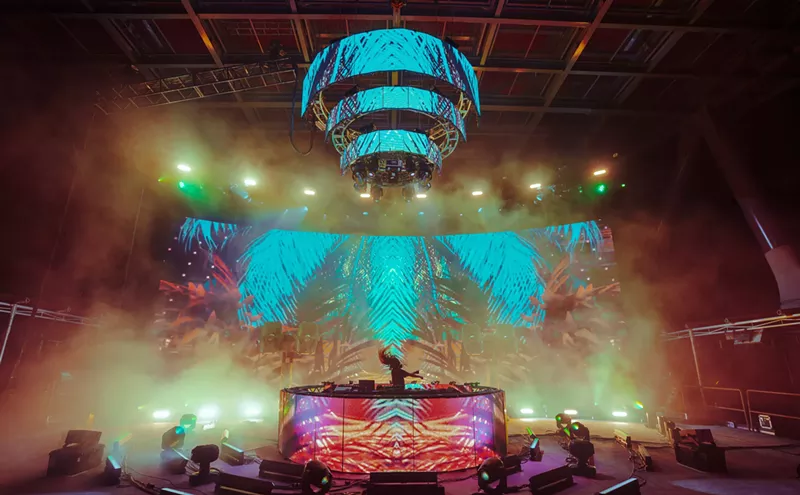At this point, the brothers had already earned street cred, filtered from the streets of their Manchester home and established in the industry through a brilliant first album that seemed to arrive out of nowhere. When Definitely Maybe escaped the ether in 1994, it announced the band as a definite -- not maybe -- personality in England's rising Britpop scene. The guys were rude, proud, brash, fatherless, poorly educated, physically aggressive, loudmouthed -- the list goes on, but the point is that it ends, finally, with "cool." Who else could start a debut album with a song called "Rock 'n' Roll Star" and make it both a boast and a prediction?
But while Definitely Maybe remains the band's most perfect album, Morning Glory will forever be its most successful. The follow-up comes with an unfair share of legends, the best of which is the most believable: After writing both "Wonderwall" and "Don't Look Back In Anger," the album's deepest stand-outs, chief songwriter Noel asked his brother which one he preferred to sing. The other, then, would be Noel's. (There's a beautiful series of anecdotes related to this: Because both brothers are in some way dyslexic, Liam was reading the lyrics as "Don't back in anger" and chose the pure-love anthem instead because it, at least, made sense.)
"Don't Look Back In Anger" marks the first song for which Noel took over lead vocals in addition to lead guitar, and the album as a whole proved the band's popularity was not without justification. The lyrics range from beautiful ("Don't Look Back In Anger": "My soul slides away") to meaningless (the entirety of "Champagne Supernova") with all the ache ("Morning Glory") and hope ("Some Might Say") that falls somewhere in between. What the guys didn't steal from John Lennon, T. Rex and a list of predecessors longer than the album's seven-and-a-half minute closer, they improvised, borrowing from the John Major era of UK politics even as it blended out of the Margaret Thatcher Period and into the reign of Tony Blair.
And in America, at least, they fucked it up. The band's reputation never strays far from its reality, and one as strongly cemented as theirs still is makes it only too easy to cross the line between live show and public brawl on a regular basis. A series of canceled tours and well-documented fiascos cut deep into the public's perception of the brothers as working-class everymen, and Be Here Now felt like an over-rehearsed, overwrought misstep from which the band, now defunct 16 years later, perhaps never quite recovered.
But sometimes, the band's music is remembered more than its shenanigans. When that happens, songs like "Don't Look Back In Anger" carry as much lasting meaning outside of their original context as they did in 1995. In many ways, this is the fatal flaw of Oasis, the Gallagher brothers' Achilles heel: When the decade declined and the excess caught up to them and the drugs became stronger, perhaps, their newer songs somehow lost the value of their meaning. The brothers became the wealthy elder statesmen of the rock community, and this role eclipsed their past lives as unsettled, uncertain youth who just kind of wanted to live forever.
In the meantime, however, there are the songs.











